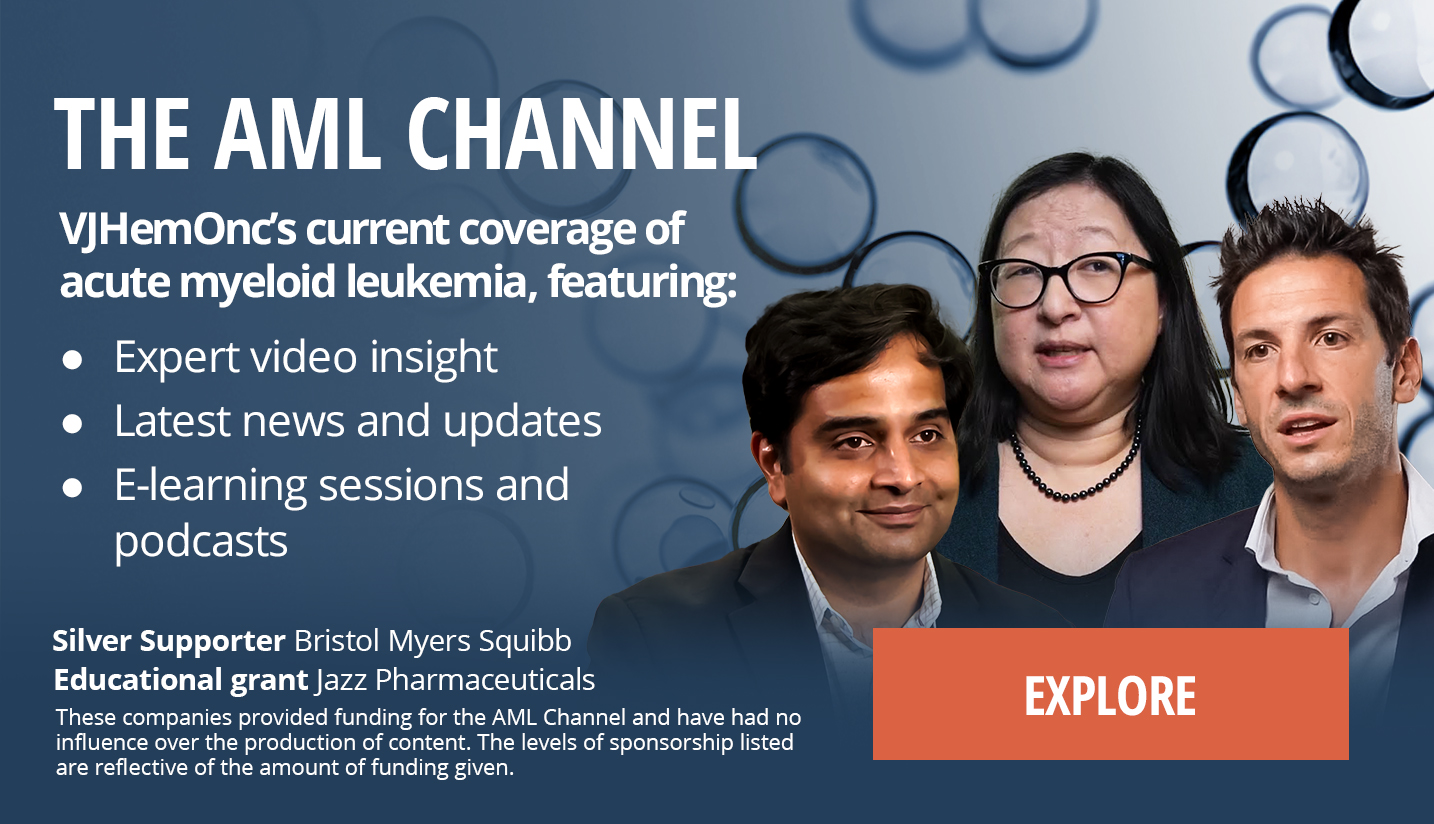So, ziftomenib is one of the menin inhibitors that has shown single agent activity in patients with AML with an NPM1 mutation, but also in patients with a KMT2A rearrangement. In the abstract that was presented by my colleague Amer Zeidan, we are combining ziftomenib in sequence with standard intensive induction chemotherapy 7 and 3 in patients with newly diagnosed NPM1 mutated disease as well as in KMT2A rearranged disease...
So, ziftomenib is one of the menin inhibitors that has shown single agent activity in patients with AML with an NPM1 mutation, but also in patients with a KMT2A rearrangement. In the abstract that was presented by my colleague Amer Zeidan, we are combining ziftomenib in sequence with standard intensive induction chemotherapy 7 and 3 in patients with newly diagnosed NPM1 mutated disease as well as in KMT2A rearranged disease. It’s important to recognize in this first study and the NPM1 mutated patients that we were required to only treat patients who were felt to be at higher risk of relapse from their NPM1 mutated disease since it generally has a better prognosis. So the cohort of patients was restricted to patients 60 years and older, those with high-risk cytogenetic changes, those with therapy-related acute myeloid leukemia. And for the KMT2A rearranged, it was all newly diagnosed patients. The CR rates are high in that group with standards 7 and 3, but relapse rates are quite high. We have looked at three different doses of ziftomenib in sequence with 7 and 3, 200, 400, and 600. Each of those are active doses for our patients getting single agent ziftomenib. What we saw is, well, first what we saw is no dose limiting toxicity. Out of the patients that we treated, only one patient had a differentiation syndrome. What we saw was a 100% response rate in the NPM1 mutated patients. And that was complete remission, not CRh. And those were durable remissions. What we saw in the KMT2A was very close to that. Almost all of the patients had a complete remission there. It’s early days. So, you know, we haven’t reached the median duration of response, median survival. But what we’ve shown with these combination studies is that the menin inhibitor, ziftomenib, can be given safely with 7 and 3 chemotherapy. Of course, we’ll need to do further Phase III studies to see if the addition of menin inhibitors to intensive chemotherapy ultimately improve the outcomes of our patients with NPM1 mutated disease or KMT2A rearranged.
This transcript is AI-generated. While we strive for accuracy, please verify this copy with the video.














